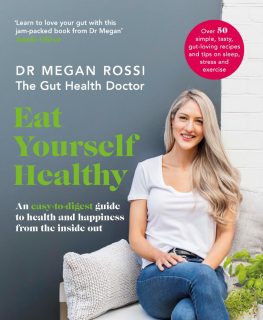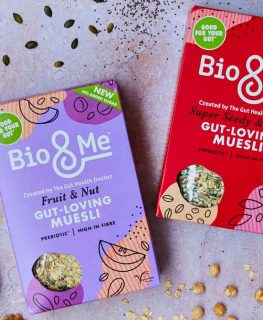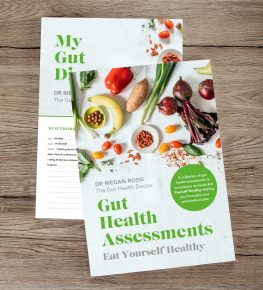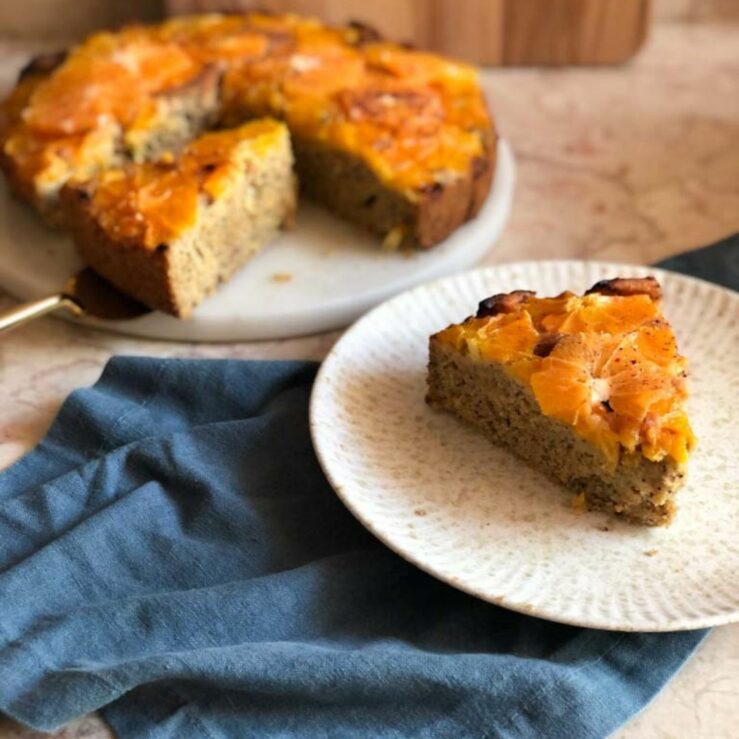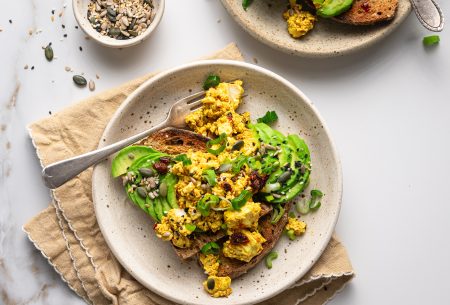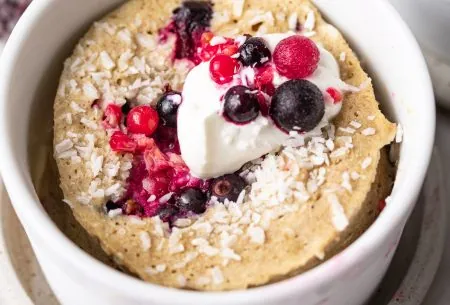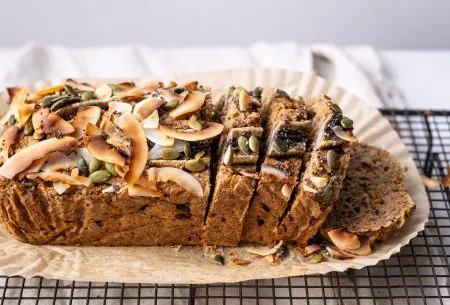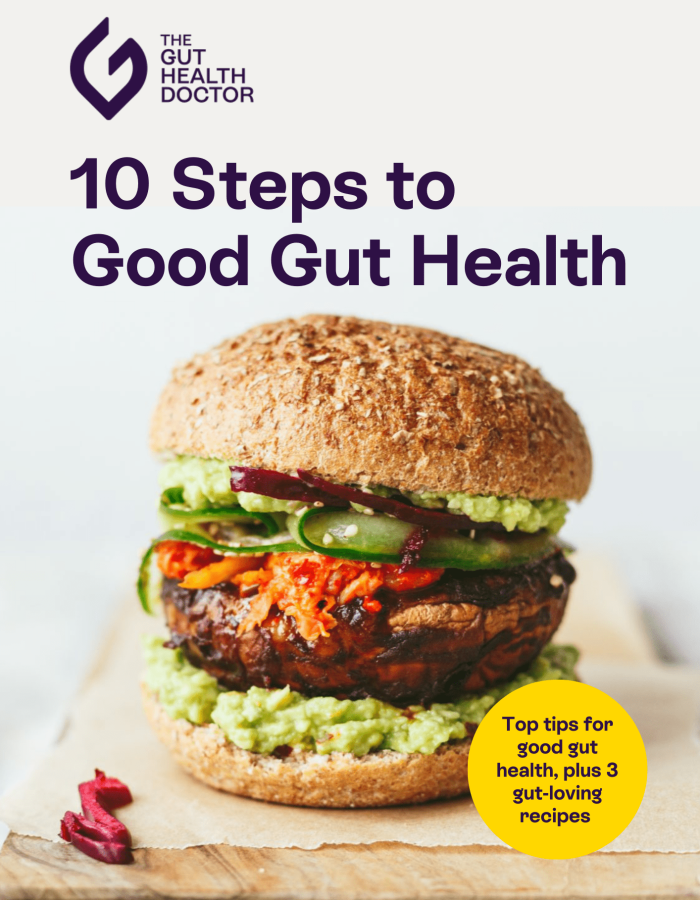A delicious, plant point fuelled and easy to rustle together olive oil cake. The citrus cuts through the oil leaving you with a light and fluffy texture. Spelt is a unique wholegrain and an excellent source of fibre and micronutrients such as calcium and vitamin E, with a tougher husk, which helps protect the nutrients inside the grain.
Ingredients
- 300g spelt flour (can use whole wheat but will be more dense)
- 1 tsp baking powder
- 1 tsp bicarbonate soda
- 3 eggs
- 250ml extra virgin olive oil (EVOO)
- 150ml milk of choice (we used soya milk)
- 150g mixed citrus (we used lemons, oranges & grapefruit)
- 3 medium carrots, grated
- 4 prunes, pitted
- poppy seeds (optional)
Method
- Heat the oven to 180C/gas mark 4. Grease a 20cm cake tin with a little oil and line the base with greaseproof paper. Line the base with sliced citrus fruits in a single layer.
- Put all the dry ingredients into a mixing bowl, grate in the zest of your citrus and mix together well (making sure there are no lumps). Blitz your prunes and milk together in a high-speed blender.
- In another large bowl, whisk the eggs, then add the olive oil, milk mixture, citrus juice (squeezed from odds and ends) and mix. Now fold the olive oil mixture into the dry ingredients, gently mixing until just combined, but no more: for a light cake, don’t over mix.
- Pour the mixture into the tin and smooth the top.
- Bake the cake for about 40 mins, or until it is golden brown and a skewer comes out clean. Leave to cool before flipping upside down and gently removing from cake tin.
Hands up if you enjoy wholegrains every day?



